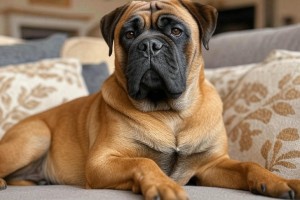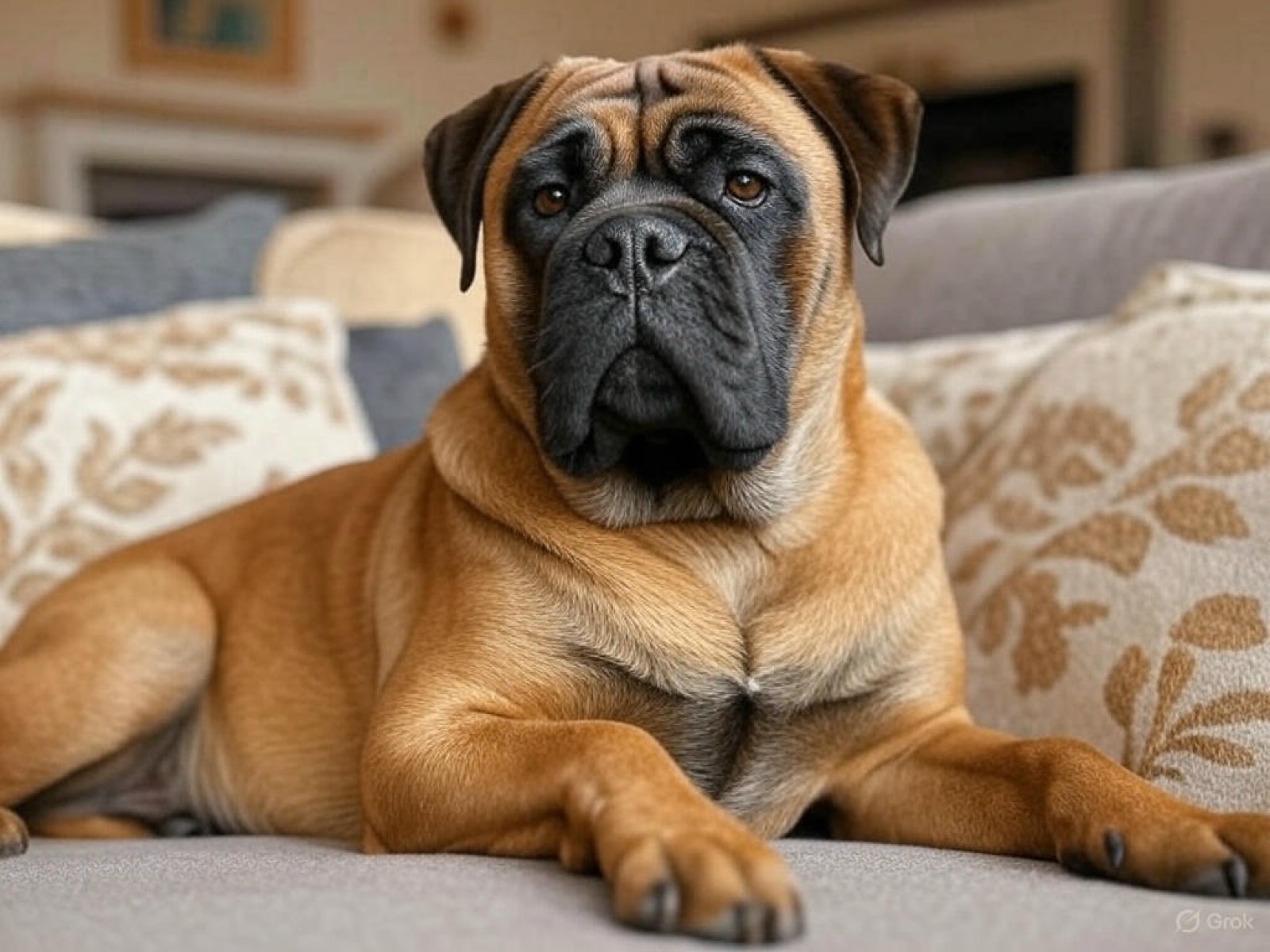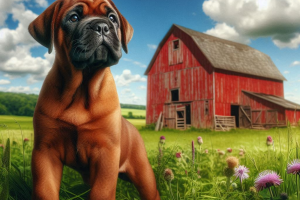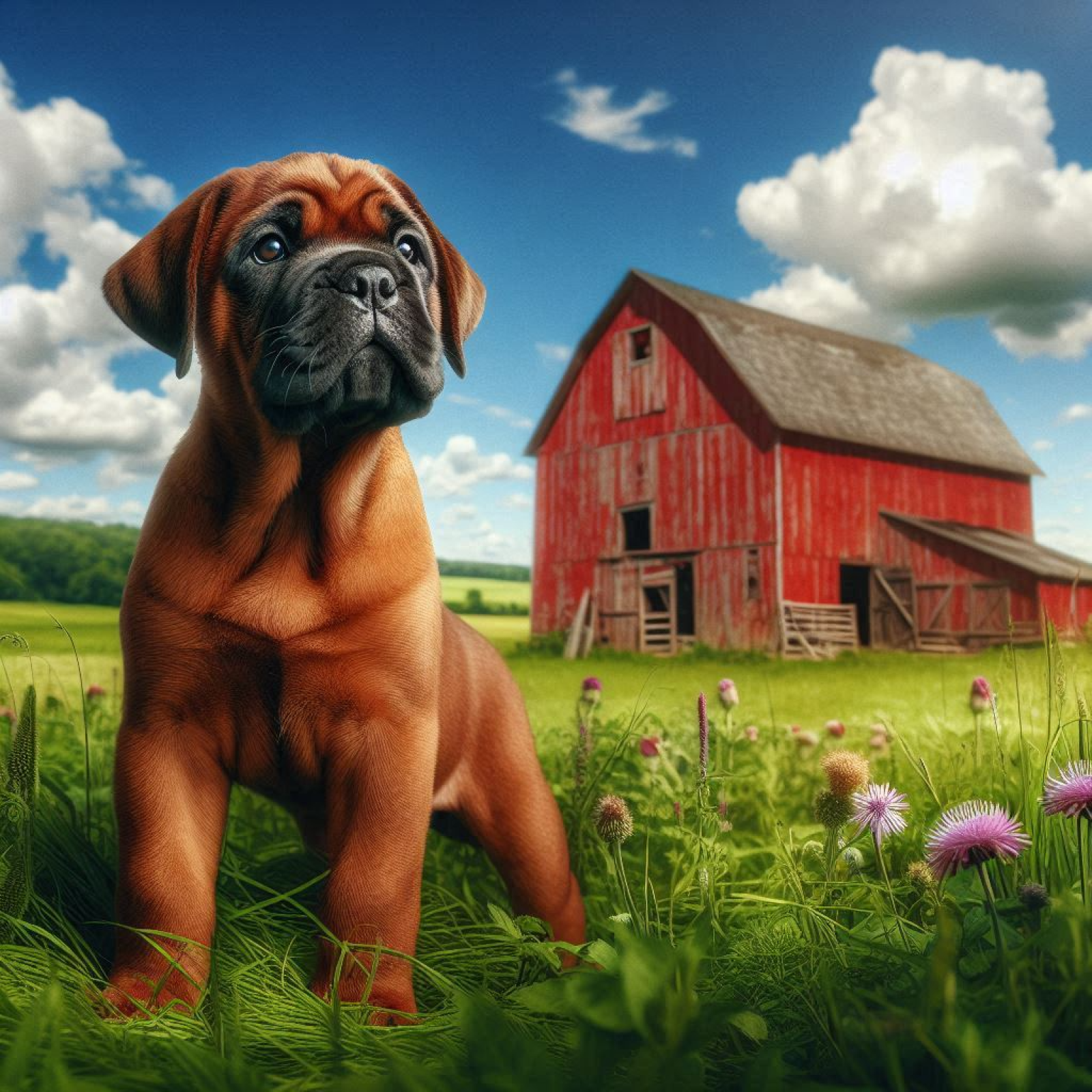Miniature Mastiff
Miniature Mastiff Breed Profile
Overview
The Miniature Mastiff is a smaller version of the traditional Mastiff, bred to retain the gentle temperament and imposing presence of its larger counterpart while being more manageable for families and smaller living spaces. This designer breed is not officially recognized by major kennel clubs like the AKC but has gained popularity among dog enthusiasts for its loyalty, calm demeanor, and adaptability.
History
The Miniature Mastiff is a relatively new breed, developed in the late 20th and early 21st centuries through selective breeding. Breeders aimed to create a compact Mastiff by crossing standard Mastiffs with smaller breeds, such as the English Bulldog or American Bulldog, or by selectively breeding smaller Mastiffs over generations. The goal was to preserve the Mastiff’s protective instincts and affectionate nature in a more apartment-friendly size. While the exact origins are murky, the breed has found a niche among those seeking a devoted companion with a less intimidating stature.
Physical Characteristics
Size: Miniature Mastiffs typically stand 20–26 inches tall at the shoulder and weigh 60–100 pounds, significantly smaller than the standard Mastiff’s 120–230 pounds.
Coat: Short, dense, and smooth, requiring minimal grooming. Common colors include fawn, brindle, apricot, and occasionally black, often with a black mask.
Build: Muscular and stocky with a broad head, deep chest, and sturdy legs. Their appearance mirrors the Mastiff’s but in a more compact frame.
Lifespan: 8–12 years, slightly longer than standard Mastiffs due to reduced strain on joints and organs.
Temperament
Miniature Mastiffs are known for their gentle, loyal, and protective nature. They are affectionate with family members, including children, and tend to be calm and composed indoors. Despite their smaller size, they retain the Mastiff’s instinct to guard, making them excellent watchdogs. They are generally friendly with strangers but will become alert if they sense a threat. Early socialization is crucial to ensure they remain well-mannered around other pets and people.
Care Requirements
Exercise: Moderate exercise needs, requiring 30–60 minutes daily. Short walks, play sessions, or light training activities suffice. They are prone to overheating, so avoid strenuous exercise in hot weather.
Grooming: Low-maintenance coat requires weekly brushing to remove loose hair. Regular nail trimming, ear cleaning, and dental care are essential.
Diet: A high-quality, balanced diet tailored to their size and activity level is necessary to prevent obesity, a common issue in the breed. Consult a veterinarian for portion control, especially since Miniature Mastiffs love to eat.
Training: Respond well to positive reinforcement but can be stubborn. Consistent, patient training from an early age is key to managing their protective instincts and ensuring good behavior.
Health
Miniature Mastiffs are generally healthy but may inherit some health issues from their Mastiff lineage, including:
Hip Dysplasia: A genetic condition affecting joint mobility; regular vet checkups and weight management can help.
Brachycephalic Issues: If crossed with short-nosed breeds like Bulldogs, they may experience breathing difficulties.
Heart Conditions: Cardiomyopathy can occur, so routine heart screenings are recommended.
Bloat (Gastric Torsion): Common in deep-chested breeds; avoid feeding large meals and monitor for symptoms. Regular veterinary care, a healthy diet, and an active lifestyle can mitigate many of these risks.
Living Environment
Miniature Mastiffs adapt well to various living situations, including apartments, provided they receive adequate exercise. They thrive in homes with yards where they can roam but are content indoors as long as their mental and physical needs are met. They prefer moderate climates due to their sensitivity to extreme heat or cold. Their calm demeanor makes them suitable for families, singles, or seniors, but they do best with owners who can provide structure and attention.
Fun Facts
Despite their name, Miniature Mastiffs are still large compared to most breeds, often surprising owners with their strength.
They are known for their deep, resonant bark, which can be startling despite their smaller size.
Miniature Mastiffs often form strong bonds with one family member, earning them the nickname “velcro dogs.”
Their love for lounging makes them excellent Netflix binge companions, but they’ll happily join you for a short adventure.
Is a Miniature Mastiff Right for You?
The Miniature Mastiff is ideal for those seeking a loyal, protective, and affectionate companion without the massive size of a standard Mastiff. They suit owners who can provide consistent training, moderate exercise, and a loving home. However, potential owners should be prepared for their guarding instincts, potential health issues, and hearty appetite. If you’re looking for a devoted friend with a big heart in a slightly smaller package, the Miniature Mastiff may be the perfect fit.





